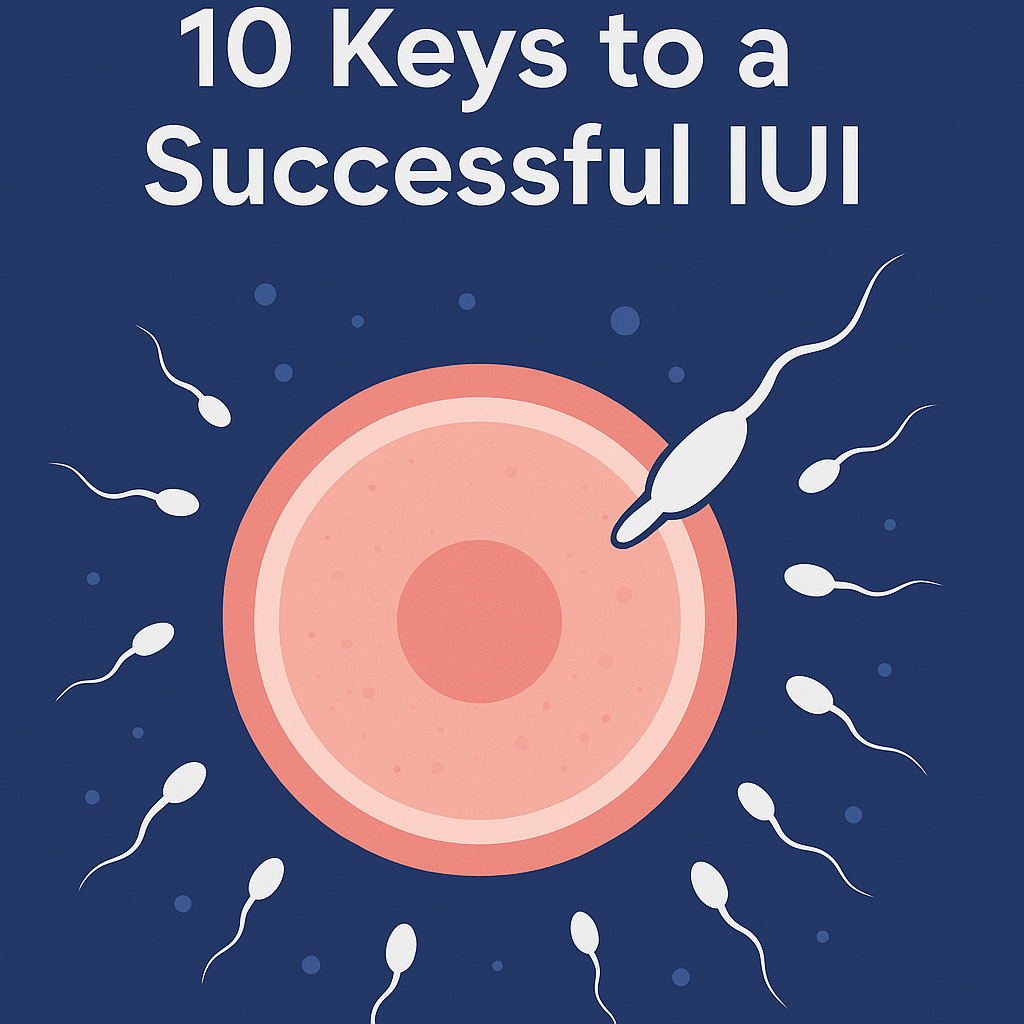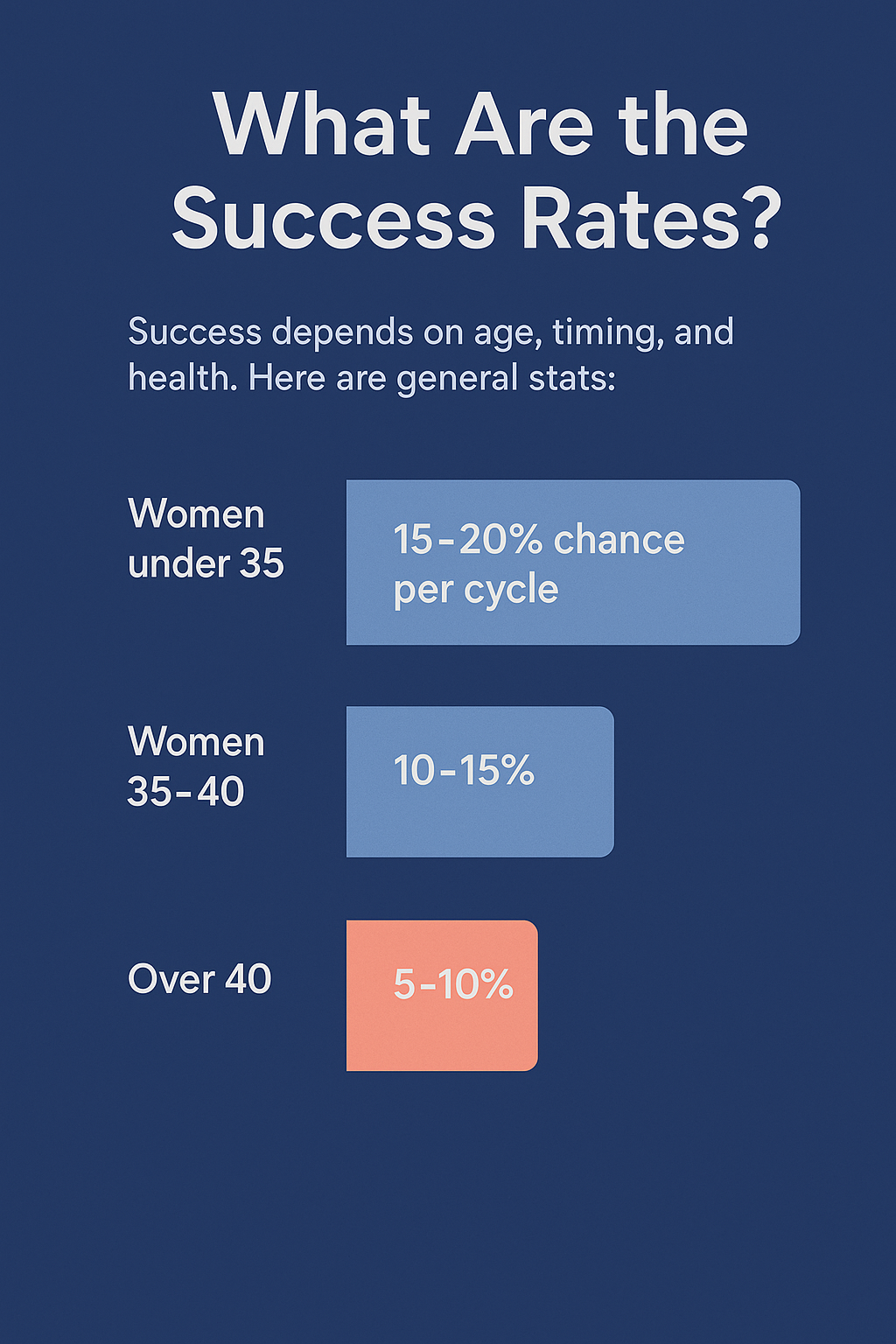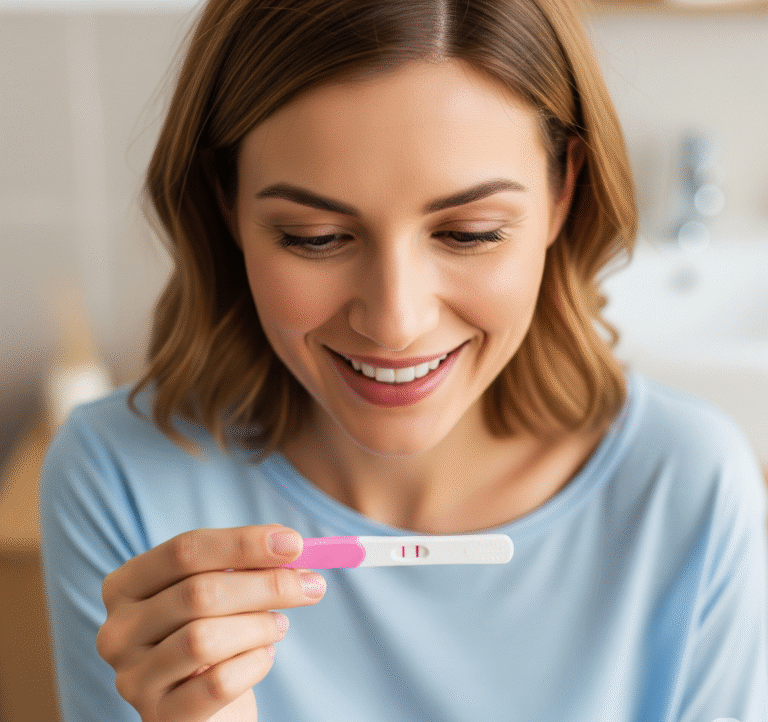10 Keys to a Successful IUI Start with Understanding the Basics
 Understanding the keys to a successful IUI begins with knowing how the process works and who it’s for. IUI stands for intrauterine insemination. It’s a method that places sperm directly into the uterus during the time you’re most fertile. This helps sperm reach the egg faster and increases the chance of pregnancy.
Understanding the keys to a successful IUI begins with knowing how the process works and who it’s for. IUI stands for intrauterine insemination. It’s a method that places sperm directly into the uterus during the time you’re most fertile. This helps sperm reach the egg faster and increases the chance of pregnancy.
Doctors often suggest IUI when couples have trouble conceiving naturally. It’s also a popular option for single women and LGBTQ+ couples who use donor sperm. IUI is less costly and less invasive than IVF. For many, it’s the first step in fertility treatment.
A doctor or nurse tracks your cycle, either naturally or with fertility meds. Once ovulation is near, sperm is washed and inserted into the uterus using a thin, flexible tube. The goal is to get healthy sperm close to the egg at the right time.
Let’s look at the first two keys to getting the best results from IUI.
Key #1: Know the IUI Process from Start to Finish
Many people feel nervous going into their first IUI. Knowing each step can make it easier.
Here’s what usually happens:
Your cycle is tracked using urine tests, bloodwork, or ultrasound.
You may take fertility drugs to grow more eggs.
When an egg is ready, you might get a shot to trigger ovulation.
The sperm sample is prepared in a lab to remove anything that could cause cramping or reduce success.
A doctor places the sperm into your uterus using a catheter.
You rest for about 10–15 minutes, then go home.
There’s no surgery, and the process usually takes less than 30 minutes.
Most doctors suggest trying 3–6 IUI cycles before moving on to other options.
Key #2: Make Sure You’re a Good Fit for IUI
IUI works best in certain cases. It’s not the right choice for everyone. These are the main situations where IUI may be a good option:
Mild male factor infertility (low sperm count or motility)
Unexplained infertility
Women under age 35 with healthy ovaries and uterus
Couples dealing with ejaculation issues
Use of donor sperm by single women or LGBTQ+ couples
If you have blocked fallopian tubes, severe endometriosis, or poor egg quality, IUI may not help. In those cases, IVF is often better.
Talk to a doctor who understands your full medical history before you begin. Testing both partners first will save time and money later.
Keys to a Successful IUI Depend on Timing, Tools, and Quality Sperm

Once you understand the basics, the next keys to a successful IUI involve what happens before the actual procedure. Preparation is just as important as the insemination itself. If the timing is off, or if the sperm isn’t healthy, the chances drop.
Good planning can make all the difference. Below are four major factors that can improve your odds.
Key #3: Track Ovulation Accurately
Ovulation is when your body releases an egg. IUI needs to happen right before or during this time. The egg only lives 12 to 24 hours, so getting this window right is key.
Ways to track ovulation:
Ovulation predictor kits (OPKs) test for LH surge in urine.
Blood tests measure hormones more exactly.
Ultrasounds show follicle growth and when the egg is ready.
Some cycles use a trigger shot to make ovulation more predictable.
Work closely with your clinic. Ask how they confirm ovulation. If you miss the window, the sperm may arrive too early or too late.
Key #4: Time the Insemination Carefully
Even if you track ovulation, you still need to schedule IUI at the right time. The best time is often about 12 to 24 hours after the LH surge or trigger shot.
Some clinics do two IUIs in one cycle (back-to-back days) to cover more ground. This may help, especially with donor sperm or if timing is hard to predict. Others stick with a single, well-timed IUI.
Ask your provider:
How many hours after the trigger do you do IUI?
Will we do one or two inseminations?
What if I surge on a weekend or holiday?
Knowing this helps you plan ahead and avoid missed chances.
Key #5: Use Good-Quality Sperm
Healthy sperm is a big part of IUI success. A low count or low motility (movement) can hurt your chances. Even if the sperm looks fine, it needs to be washed before IUI.
Washing removes:
Dead or slow sperm
Seminal fluid
White blood cells and other debris
This process leaves behind the best sperm, ready to swim toward the egg.
Types of sperm used:
Partner sperm (fresh, frozen, or collected on the day)
Donor sperm (always frozen, then thawed)
Home-collected sperm (must be brought to clinic fast)
Make sure your clinic gives you a report on sperm quality. You want a high motile count and good forward movement.
Key #6: Support the Uterine Environment
Even if the sperm is strong and well-timed, it still needs to meet the egg in a welcoming place. That’s where the uterus comes in.
Things that help:
A thick, soft lining (8–12mm is ideal)
No signs of infection or polyps
Good hormone levels after ovulation (progesterone)
Some people take progesterone supplements after IUI. Others use estrogen earlier in the cycle to build the lining. These meds help prepare the uterus for implantation.
A well-prepped uterus gives the embryo a better chance to stick and grow.
More Keys to a Successful IUI Include Medication, Lifestyle, and Mindset

Not all success comes from what happens at the clinic. Your daily habits, stress levels, and how your body responds to treatment also matter. Some people skip these areas, but they play a big role. These next three keys to a successful IUI are often overlooked—but they shouldn’t be.
Key #7: Use Fertility Medications If Needed
Fertility drugs don’t just help you ovulate. They help your body produce more than one mature egg. This gives sperm more targets and raises your chances.
Common meds:
Clomid (clomiphene): Stimulates ovulation. Often used early in IUI cycles.
Letrozole (Femara): Similar to Clomid but may have fewer side effects.
hCG trigger shot: Tells your body to release the egg. Helps with timing.
Progesterone: Supports the uterine lining after IUI.
These meds are usually taken in low doses. Your doctor will watch how your body responds. Too many eggs can raise the risk of twins, so careful monitoring is important.
Key #8: Live a Fertility-Friendly Lifestyle
You can’t control everything, but your daily habits can support a healthy cycle.
Helpful habits:
Eat whole foods rich in fiber, protein, and healthy fats.
Take a daily prenatal vitamin with folate.
Get 7–9 hours of sleep each night.
Drink enough water.
Limit caffeine to one cup a day.
Avoid smoking, vaping, and alcohol.
For men, sperm health improves with a balanced diet, exercise, and lower heat exposure (no hot tubs or tight underwear).
These small steps help both partners get ready for a healthy pregnancy.
Key #9: Lower Stress and Protect Your Mental Health
Trying to conceive can take a toll on your emotions. Stress affects hormone levels and may reduce your body’s ability to conceive.
Ways to manage stress:
Join a support group (online or local).
Try mindfulness, breathing, or light yoga.
Talk to a counselor who understands fertility.
Write in a journal.
Ask for help when needed.
You don’t need to be perfectly calm. Just try to build simple habits that help you feel more in control. Emotional health is part of physical health.
What Research Says About IUI Success
Studies help us understand what works and what doesn’t. Here are three research-backed insights:
Pregnancy Outcome of Home Intravaginal Insemination in Couples with Unconsummated Marriage
This study showed that pregnancy rates were higher in younger women. After six cycles, success dropped sharply in women over 36.The Effect of Semen Collection at Home on Intrauterine Insemination (IUI) Outcomes
This study found that collecting sperm at home did not lower IUI success rates, offering more flexibility to couples.Results of Artificial Insemination at Home by the Partner with Cryopreserved Donor Semen: A Randomized Study
This research compared home insemination to clinical IUI and found similar success rates with thawed donor sperm.
The Final Keys to a Successful IUI Happen After the Procedure

Once the sperm is placed, the hard part may seem over. But how you handle the next two weeks matters too. The final keys to a successful IUI involve patience, follow-through, and smart decisions if pregnancy doesn’t happen right away.
Many people wonder what they should do, feel, or expect after IUI. This section will walk you through it.
Key #10: Support Your Body After the IUI
After IUI, there’s a waiting period before you can test. It usually lasts 12 to 14 days. This is called the two-week wait.
During this time:
Take it easy, but no need for bed rest.
Avoid heavy lifting or intense workouts.
Keep taking any meds your doctor gave you (like progesterone).
Eat well and stay hydrated.
Don’t test too early. It can lead to false hope or worry.
Some people feel cramping, bloating, or mood swings. These can be caused by hormones or the meds—not always pregnancy.
Focus on staying calm and giving your body time to do its job.
When to Test and What to Expect
Most doctors recommend testing 14 days after IUI or the trigger shot. Testing too early may show a false positive due to leftover hormones.
Use a home pregnancy test or get a blood test at your clinic. If it’s negative, your period may come soon after.
If it’s positive, your clinic will likely repeat the test in 2 days to confirm that levels are rising. Then, you’ll have an early ultrasound around 6–7 weeks.
What If It Doesn’t Work?
IUI often takes more than one try. Most people don’t get pregnant on the first cycle. Here’s what you can do:
Try again next cycle, with or without changes.
Adjust your meds or timing.
Get extra tests (like a saline ultrasound or sperm DNA test).
After 3–6 failed IUIs, talk to your doctor about switching to IVF.
Keep in mind, age plays a big role. Women over 35 may want to move more quickly through cycles or consider other options sooner.
Choosing the Right Provider Matters
Success rates are only part of the picture. You want a clinic that listens, explains, and treats you with care.
Things to ask when choosing a provider:
What is your IUI success rate by age group?
Do you offer weekend or emergency insemination?
Do you use ultrasound to track ovulation?
What’s the full cost, including meds and lab fees?
How many cycles do you recommend before moving on?
Having the right medical team can reduce stress and improve your outcome.
FAQ: Common Questions About IUI
How many IUI cycles should I try before switching to IVF?
Most providers suggest 3 to 6 IUI cycles. If there’s no success after that, IVF may offer better results.
Does IUI hurt?
You may feel mild cramping, but most people say it feels like a Pap smear. It’s quick and doesn’t require recovery time.
Can I exercise after IUI?
Light exercise is fine. Avoid intense workouts or anything that puts pressure on your belly for a few days.
Can stress affect IUI success?
Yes. High stress can affect hormone balance. It won’t ruin your chances, but lowering stress may help.
Is IUI more successful with fertility meds?
Often, yes. Medications help you ovulate more eggs, which raises the odds. But some people succeed with natural cycles too.




